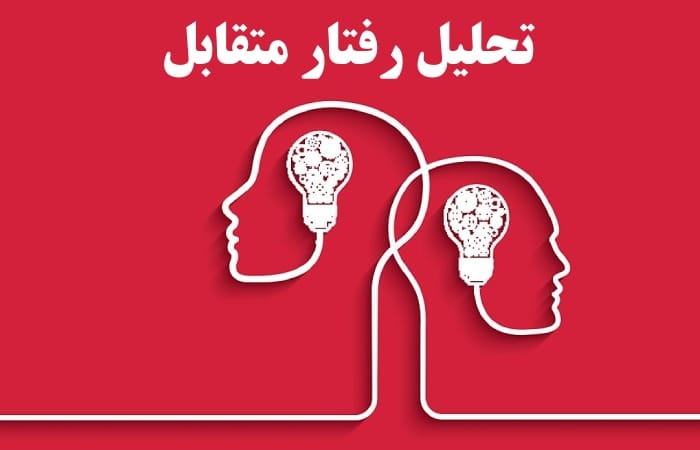
Blog
Interaction analysis

Transactional Analysis (TA) is a comprehensive and accessible psychological approach designed to aid personal growth, improve interpersonal relationships, and help individuals achieve their maximum internal potential across various aspects of life.
TA therapy was established by Dr. Eric Berne in the late 1950s. Eric Berne was influenced by some of his contemporaries such as René Spitz, Erik Erikson, Paul Federn, Eduardo Weiss, and especially Sigmund Freud and Wilder Penfield. He founded Transactional Analysis based on these influences.
فهرست عناوین
ToggleIntroduction to the TA Approach
The TA approach is based on the theory that every individual has three ego states: Parent, Adult, and Child. These dimensions, along with other key concepts, tools, and models of Transactional Analysis, are used to analyze how people communicate and to identify what type of interaction is necessary to achieve better outcomes.
In TA, the client often oscillates between past and present, with particular attention paid to their childhood period. TA examines the personality dimensions and experiences gained from childhood, which is achieved through skillful questioning and the use of specific techniques and tools.
During therapy, the therapist works on problem-solving behaviors and helps the client use daily tools to find constructive and creative solutions. The ultimate goal is for the client to achieve autonomy in their life. Eric Berne defined this autonomy as the recovery of three vital human capacities: spontaneity, awareness, and intimacy.
This method can be conducted individually, as couples therapy, or family therapy. Although TA is a brief and solution-focused approach, it can also be extended into long-term therapy.
TA can cover a wide range of human issues because it integrates other approaches such as psychoanalysis and psychodynamics.

Key Concepts in Transactional Analysis
In TA, “scripts” are discussed. Scripts are somewhat equivalent to core beliefs in schema therapy. Scripts consist of beliefs, feelings, and thoughts instilled in individuals from childhood, upon which they base their decisions, choices, and way of life. For example, if a girl’s script is that “beauty comes from wearing makeup,” then as an adult, she may not accept herself as she is and constantly seek changes in her appearance.
Ego States in TA Approach
According to Transactional Analysis (TA), the ego of each person is composed of three parts: Parent, Adult, and Child.
- Parent: This ego state is rooted in the past and consists of the set of rules and values (the “shoulds” and “should nots”) that were taught by parents and other authority figures. The Parent ego state can be either nurturing (supportive) or critical.
- Child: Like the Parent, the Child ego state also originates from the past. It consists of beliefs, thoughts, and feelings — often referred to as “scripts” — that were instilled during childhood.
- Adult: The Adult ego state is rooted in the present. It encompasses the logical and rational aspects of personality and provides effective ways to communicate and interact.
Different people interact with each other based on which ego state is more active or dominant in them. Interactions can be Parent-Parent, Parent-Adult, Adult-Adult, Child-Child, Child-Parent, or Child-Adult. Naturally, the Child ego state does not remain as a child forever; it grows and gains strength, sometimes to the point where the Adult ego state cannot control it. People dominated by the Child ego state may act irrationally, as even a grown child still thinks and behaves childishly. In the Child-Adult relationship, the Child ego state constantly follows and obeys the Adult ego state.

Strokes in TA
How much do you like yourself? Have you ever said “no” to something against your will? Have you ever wanted to receive affection from someone?
These questions and concepts relate to the idea of “strokes” in Transactional Analysis.
Every person, during childhood, when nurtured and stroked (i.e., hugged or kissed) by their parents, experiences feelings of existence, being seen, and being effective. If these needs are not properly met, it may lead to improper self-stroking behaviors in adulthood.
Eric Berne states that humans need strokes and recognition not only in childhood but also in adulthood because through receiving strokes, a person experiences existence and identity.
People continually give each other strokes in their daily lives and interpersonal relationships. These strokes can be positive or negative. Positive strokes make a person feel good, such as talking or walking together. Negative strokes cause unpleasant feelings, such as threatening or ignoring someone.
Humans generally prefer to receive some attention, even if negative, rather than receive no strokes at all.
Goals of Transactional Analysis
Transactional Analysis is essentially used in interpersonal communication, especially in family issues, couples’ relationships, and friendships, because it encourages clients to resolve conflicts that have developed over time. Eric Berne believed that everyone has the capacity to decide what they want from life. TA can help us recognize our values and achieve those goals.
Overall, the TA approach is designed to promote personal growth and change and provides an opportunity to develop various life skills. For this reason, it is effective in solving many problems.
برای مشاوره رایگان و رزرو وقت (یا اگر تماس گرفتید و قادر به پاسخگویی نبودیم) شماره تماس خود را وارد کنید. ما به زودی با شما تماس می گیریم!



